Carter’s story
Carter’s symptoms began over Thanksgiving weekend in 2015. It wasn’t anything too troubling at first: the 10 year old was experiencing cold-like symptoms and pain in his left shoulder. The next week, his symptoms progressed to a high fever and difficulty breathing.
“The doctors thought it was pneumonia,” said his mom Marla. “So they gave him steroids, an inhaler, and some antibiotics to take.”
But Carter only got worse. The doctors put him on breathing support and tried different medications. Nothing worked, and he was soon being airlifted from Kelowna to the pediatric intensive care unit at BC Children’s Hospital. There, doctors worked tirelessly to figure out why a healthy child couldn’t fight off a common infection.
Because he could no longer breathe on his own, Carter was intubated for the next ten days. The doctors tested for a host of diseases—from HIV to tuberculosis—to pinpoint what was wrong. A few more days went by, during which “Carter got really bad really quick,” Marla said.
The doctors then ordered an urgent CT scan and bone marrow biopsy, which gave them their answer. Carter had stage four Anaplastic Large Cell Lymphoma (ALCL), a rare type of cancer that represents only 10 per cent of non-Hodgkin lymphoma cases in children.
Within hours, he started his first of 11 rounds of chemotherapy. Despite the treatment and an improvement in his outward symptoms, the cancer spread to his kidneys and pancreas. “That was the hardest part for us—the diagnosis that things weren’t getting better,” Marla said.
Desperate to save him, they tried a newly-approved therapy drug targeted specifically to ALCL. Carter had four more rounds of chemotherapy followed by preparation for a bone marrow transplant in May. That involved three days of heavy chemotherapy and six rounds of Total Body Irradiation.
“That was the hardest part for us—the diagnosis that things weren’t getting better.”
— Marla, Carter’s Mom
After the transplant, Carter spent two months in the hospital from complications with his cells fighting the donor cells, including nausea so intense he needed to be fed through IV, fevers and a full body rash. Once he regained his strength, he finished his last four rounds of chemotherapy.
Carter is now back in Kelowna with his family. Despite a life-changing diagnosis, Carter is back to doing what he loves—football, soccer and road biking. Carter says his experience has shaped his desire to help others.
“I tell my story so people know there are more kids that get better and back to what they were doing before they got sick.”

